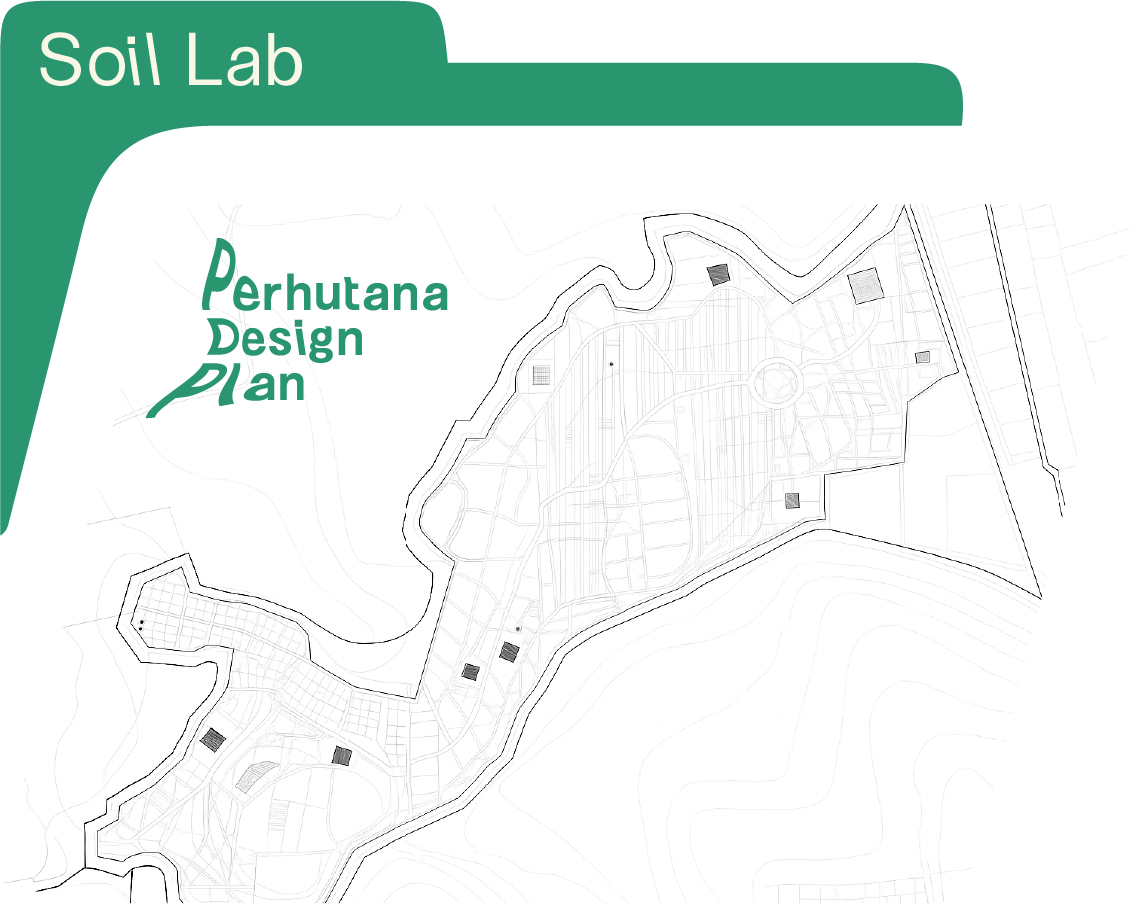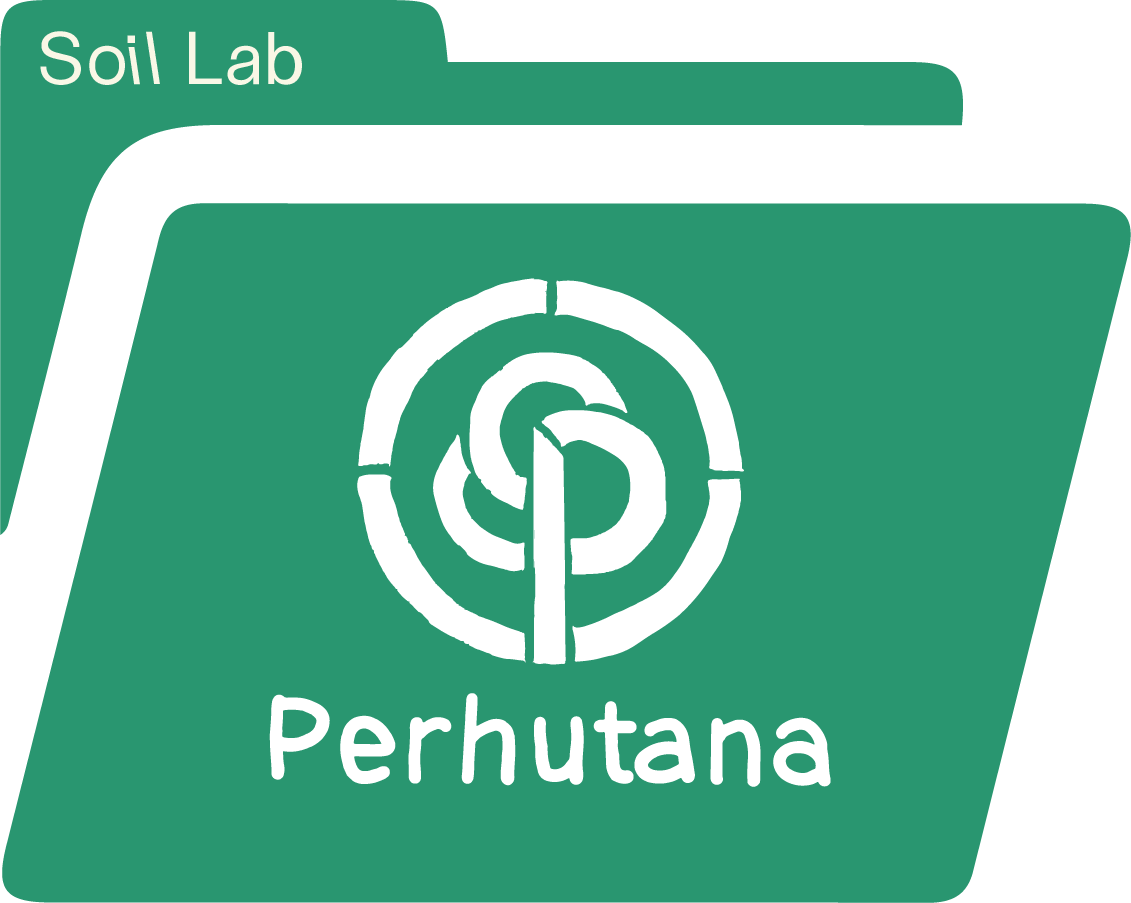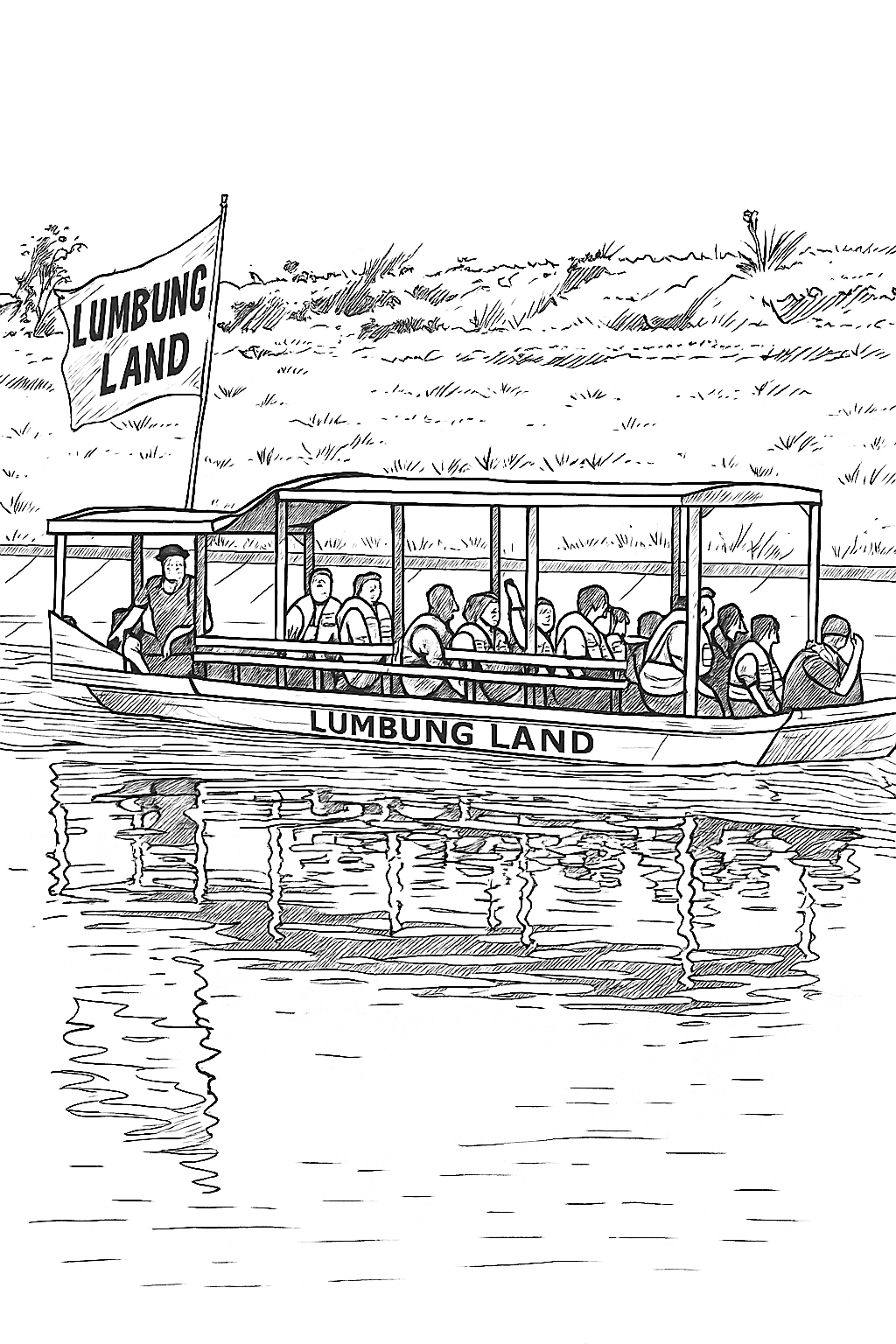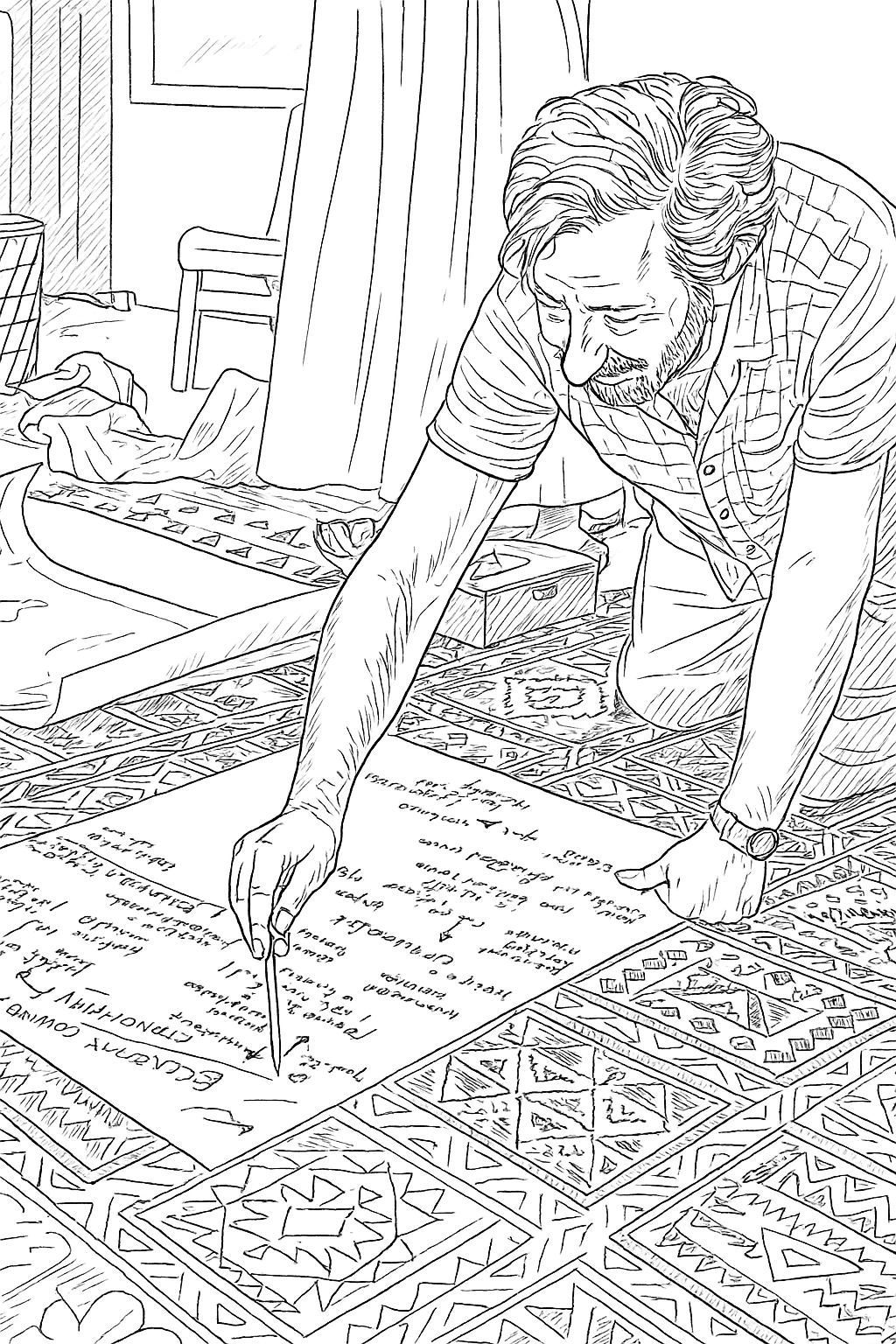Wednesday, 23 April – In a gathering shaped by mutual care, land-rooted ethics, and collective dreams, communities and organizations such as Jatiwangi Art Factory (JAF), Wajukuu, Inland, and others came together to forge visions for Lumbung Land—a regenerative, community-owned, and art-infused movement for land sovereignty and ecological harmony.
For Lumbung Land, what should be prioritized? For example, if you are interested in doing art in your locality because it is one of the most important aspects of your community, but in terms of how you want to approach it in this room, it might be something different.
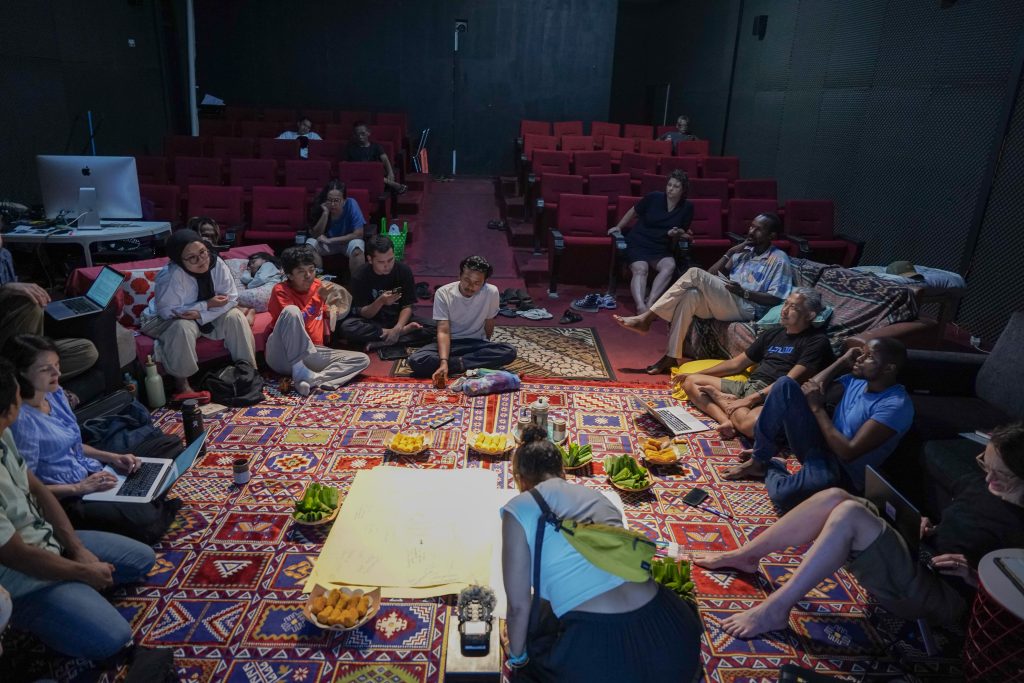
Ethics
At the heart of the Lumbung Land School lies a set of deeply rooted ethics centered on community, care, and reciprocity. This includes grounding in local communities such as the Masaai, Happy Farmers in Lombok, and Jatiwangi Art Factory (JAF). It calls for an awareness and respect for others—those who have come before, those who are there now, and the land itself.
The ethics promote listening and awareness, not only to people but to the rhythms of the land. This means avoiding overwork—of both land and people—emphasizing seasonality, soil care, and rest. For those entering foreign land, a connection with ancestors and spiritual guidance is essential. As one proverb reminds us: “We don’t inherit the farm, the farm inherits you.”
In some cultures, land is not sold but exchanged, recognized as holding sacred (and sometimes cursed) energies. Hospitality is fundamental—offering food and water—and being a good guest matters. When working with artists or external actors, ownership must be shared. To avoid extractive models, collaborations must be reciprocal and co-owned, with decisions shared equally between artists and hosts.
This reciprocity—Baku Konek—extends to ideas, knowledge, and resources. Collectivity is built on trust, not only on hearing every voice. Intuition and other senses must be engaged, emphasizing process over product, gratitude over greed, and collective abundance over individual gain. The Lumbung Land School aspires to be a lighthouse—recognizing privilege, responsibilities, and fostering sovereignty.
ACTIVITIES
Research/Study
A central focus is on learning from traditional systems of land governance. Where knowledge has been lost or fragmented, we must also invent new models based on shared composition of knowledges and experiences. This includes understanding commons management, medicinal plants, seed preservation, and ecological practices.
Expertise
The school welcomes not just experts, but expertise. JAF, Wajukuu, Inland, and Ungovernable will play a role in offering consultancy and grounded wisdom. Areas of focus include agroforestry, food preservation, low-tech farming technologies, legal understanding, project planning, and development strategies. An apothecary/foodlab and medicinal laboratory are envisioned, where recipes and traditional healing knowledge are preserved.
Indigenous knowledges, low-cost and accessible technologies, and practical experience form the core expertise, offering advice on how to make initiatives both sustainable and regenerative.
Cultural Activities / Art to Bring People Together
Art has a vital role—especially in regions where it is often absent. It becomes a medium for gathering, raising ecological awareness, and building policy through creativity. Through ritual, performance, storytelling, and advocacy, art enables deeper connection to land and community. Common activities—like festivals, storytelling circles, and ritual practices—are part of the cultural strategy.
Art is also explored as a potential fundraising tool, expanding the influence of the New Rural Agenda and supporting grassroots efforts.
Infrastructure
Infrastructures are to be low-cost, movable, and sustainable. Ideas include a ketchup machine, solar power, plumbing, and lightweight architecture. Food processing infrastructure is also crucial, creating value-added products from the land’s produce.
Communication
Lumbung continues in the art world, but it is also a voice within agroecological movements. Communication will happen through multiple formats beyond reading—such as audiovisual, performance, and storytelling. It’s about unlocking the knowledge held by the land and sharing it in accessible and embodied ways.
Networking
The Lumbung Land School actively fosters expanded networks—locally and globally. It seeks to include more voices, work alongside policy makers, and align with international movements like La Via Campesina and Nyéléni for food sovereignty. Key to the network is building bridges between artists, agroecological practitioners, and community organizers, enabling cross-pollination of knowledge and strategies.
Economy
The economy of Lumbung Land is both local and collective. Income generation can emerge through the school itself, through land-based projects. There’s an interest in establishing models that are not capitalist in nature—focusing instead on sufficiency, mutual support, and shared value.
Tools like rotating funds (arisan) provide starting investment capital. A “rice barn” model pools shared resources. Agroecological experts help ensure these economic models are grounded in ecological feasibility. Each land can develop its own micro-economy, then connect with others for solidarity and exchange. A business model, or even a common currency, could emerge from this experimentation.
Fundraising in a way of how we can also think in other ways to fill our common pot: f.e. Selling Ade’s work
Fundraising will be approached with creativity—such as selling artwork or organizing events—while keeping in mind the collective goal: a sustainable, just, and regenerative economy for all participants.
The Lumbung Land School is a living model of collectivity, not only in theory but in its daily practice. It is where ethics, knowledge, culture, ecology, and economy intersect—rooted in the local, but reaching outward in shared global learning.
As one reflection beautifully put it: “Collectivity is not always about hearing all the voices, it is about trust.”



